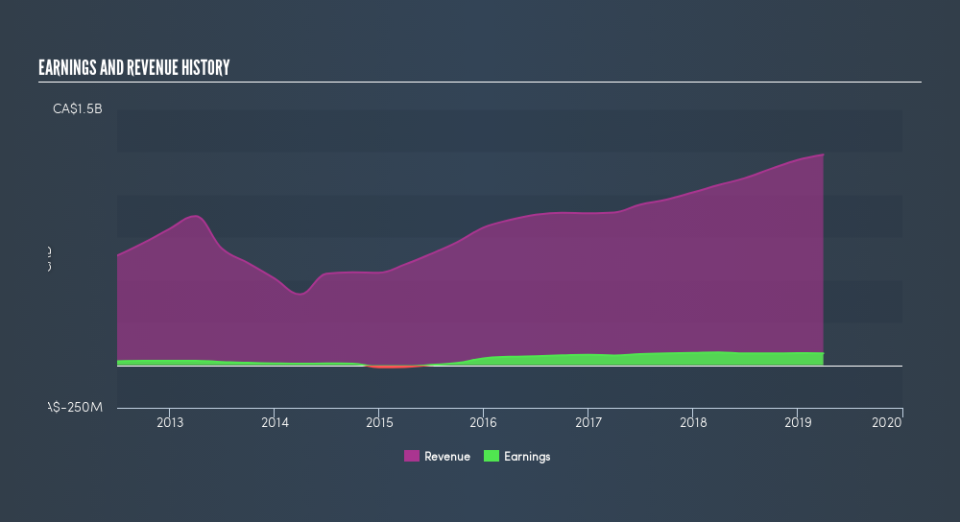How Does Investing In Exchange Income Corporation (TSE:EIF) Impact The Volatility Of Your Portfolio?

Want to participate in a short research study? Help shape the future of investing tools and you could win a $250 gift card!
Anyone researching Exchange Income Corporation (TSE:EIF) might want to consider the historical volatility of the share price. Volatility is considered to be a measure of risk in modern finance theory. Investors may think of volatility as falling into two main categories. First, we have company specific volatility, which is the price gyrations of an individual stock. Holding at least 8 stocks can reduce this kind of risk across a portfolio. The second type is the broader market volatility, which you cannot diversify away, since it arises from macroeconomic factors which directly affects all the stocks on the market.
Some stocks are more sensitive to general market forces than others. Beta can be a useful tool to understand how much a stock is influenced by market risk (volatility). However, Warren Buffett said 'volatility is far from synonymous with risk' in his 2014 letter to investors. So, while useful, beta is not the only metric to consider. To use beta as an investor, you must first understand that the overall market has a beta of one. A stock with a beta greater than one is more sensitive to broader market movements than a stock with a beta of less than one.
View our latest analysis for Exchange Income
What EIF's beta value tells investors
With a beta of 1.08, (which is quite close to 1) the share price of Exchange Income has historically been about as voltile as the broader market. Using history as a guide, we might surmise that the share price is likely to be influenced by market voltility going forward but it probably won't be particularly sensitive to it. Share price volatility is well worth considering, but most long term investors consider the history of revenue and earnings growth to be more important. Take a look at how Exchange Income fares in that regard, below.
How does EIF's size impact its beta?
Exchange Income is a small cap stock with a market capitalisation of CA$1.1b. Most companies this size are actively traded. Small companies often have a high beta value because the stock price can move on relatively low capital flows. So it's interesting to note that this stock historically has a beta value quite close to one.
What this means for you:
Since Exchange Income has a beta close to one, it will probably show a positive return when the market is moving up, based on history. If you're trying to generate better returns than the market, it would be worth thinking about other metrics such as cashflows, dividends and revenue growth might be a more useful guide to the future. In order to fully understand whether EIF is a good investment for you, we also need to consider important company-specific fundamentals such as Exchange Income’s financial health and performance track record. I highly recommend you dive deeper by considering the following:
Future Outlook: What are well-informed industry analysts predicting for EIF’s future growth? Take a look at our free research report of analyst consensus for EIF’s outlook.
Past Track Record: Has EIF been consistently performing well irrespective of the ups and downs in the market? Go into more detail in the past performance analysis and take a look at the free visual representations of EIF's historicals for more clarity.
Other Interesting Stocks: It's worth checking to see how EIF measures up against other companies on valuation. You could start with this free list of prospective options.
We aim to bring you long-term focused research analysis driven by fundamental data. Note that our analysis may not factor in the latest price-sensitive company announcements or qualitative material.
If you spot an error that warrants correction, please contact the editor at editorial-team@simplywallst.com. This article by Simply Wall St is general in nature. It does not constitute a recommendation to buy or sell any stock, and does not take account of your objectives, or your financial situation. Simply Wall St has no position in the stocks mentioned. Thank you for reading.

